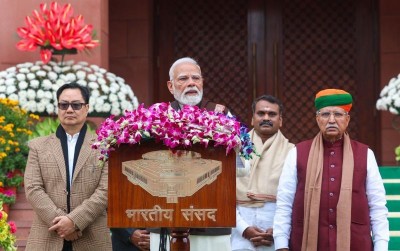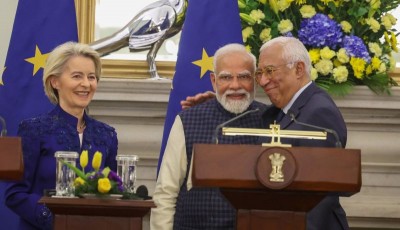Hide criminal records, get disqualified :SC about lawmakers
"Non-disclosure of criminal antecedents amounts to corrupt practice by the candidates. The crucial recognized ideal which is required to be realised is eradication of criminalisation of politics and corruption in public life," a two-judge bench, headed by Justice Dipak Misra, observed.
"Disclosure of criminal antecedents of a candidate, especially, pertaining to heinous or serious offence or offences relating to corruption or moral turpitude at the time of filing of nomination paper as mandated by law is a categorical imperative," the court added.
The judgement is significant in the move towards eradication of criminalisation of politics.
It came in a 2006 case relating to the nullification of election of a panchayat member in Tamil Nadu's Coimbatore by the Madras High Court which found him guilty of not disclosing pending criminal cases against him while filing his nomination for elections.
The order was challenged in the Supreme Court which upheld the lower court's order and imposed a fine of Rs. 50,000 on the panchayat member.
IIn 2013, the Supreme Court had ruled that elected lawmakers would stand disqualified if convicted by a court and sentenced to two years of imprisonment or more.
This made AIADMK Chief J Jayalalithaa to step down as chief minister of Tamil Nadu in September last year after she was found guilty in a disproportionate assets case. She is also barred from contesting elections for 10 years as part of the ruling.
Support Our Journalism
We cannot do without you.. your contribution supports unbiased journalism
IBNS is not driven by any ism- not wokeism, not racism, not skewed secularism, not hyper right-wing or left liberal ideals, nor by any hardline religious beliefs or hyper nationalism. We want to serve you good old objective news, as they are. We do not judge or preach. We let people decide for themselves. We only try to present factual and well-sourced news.






